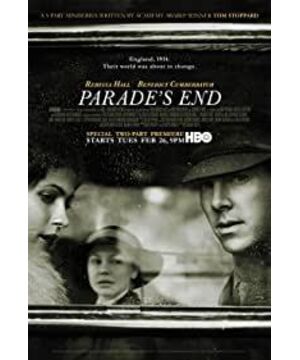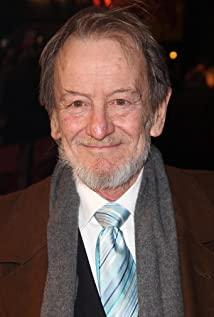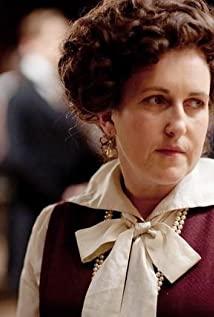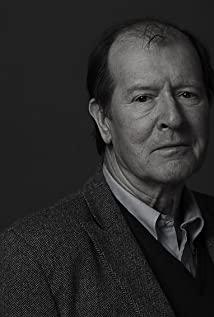--------------------------------- ----------------------------The dividing line of the mystery------------------- ----------------------------------------------
took a whole In the afternoon, I stumbled through "The End of the Queue". But he didn't dare to say that he understood it, but he always felt that he should write something. To put it nicely, it is because I feel that I have not watched this drama in vain; to be honest, it is to sort out my somewhat confused thoughts and make sure that time is not wasted.
Parade's End, the title of the play is translated as "The End of the Queue", I take it for granted that it is a double aptitude for the literal and the plot: a love story during World War I, a queue during a war, and a love after the war. However, when the word "parade" really appeared in the play, it was Christopher played by BC. He only said when his wife's infidelity could no longer be concealed. He insisted on not getting divorced and forbearing the existence of such a marriage because of the high-class family's infidelity. something called a parade. The subtitle team noted that this is the title of the show, "The End of the Queue", which advocates orderly family members, elders and children, and love each other.
I thought of the ancient patriarchal system almost instantly, but denied myself the next moment. Not the same, but it seems, there is nothing the same.
Christopher is a standard gentleman, standard over-the-top aristocrat. From the very beginning, he knew that his wife was not a pure and loyal person, and he was not even sure if the child in her belly was his own. Yet, as his unfaithful wife Sylvia kept insisting, he was "the last virtuous man of the British Empire". He was too kind, too weak, and too old-fashioned. A momentary passion on the train made him "laid on" by Silvia. And he seemed to be holding on to luck, thinking that at least there was still some passion between him and her.
It turns out, however, that his passion for sustaining this passion is far less than his wife's demands.
I seem to understand Sylvia's misdeeds. She is romantic, but a smart woman. She loves Christopher, but has no way of determining his love for her, so she has to keep doing things that go beyond the norm in response to his indifference to her. But what a stupid woman she was, she couldn't understand that Christopher's upbringing never allowed him to express his emotions as he wanted: he was trembling when he saw soldiers dying in front of him, but on the battlefield he saw faces full of faces A man of blood fell in front of him, but he was able to suppress himself and calmly issue orders to handle military affairs. He was an aristocrat, raised in the upper class, and despite the decline of his family, he still insisted on his own principles, the principles that were out of place but deeply rooted in his heart like Grubby's cedar.
Sylvia wanted to chop down the cedar. She threatened Christopher with cutting down the tree if he died. That tree blocked the sunlight in the bedroom, made her depressed, and drove her crazy. She did everything she could to chop it off, to uproot it from Christopher's heart before it grew into her son Michael's. However, she thought that every knife she used to cut down the tree had penetrated into his heart. When the tree fell, his heart for her was also cut into pieces of broken wood.
Sylvia said more than once, it was too late, too late. In fact, it is not love that is late, but the heart that understands love. When she showed her intentions and thought she could save everything, Christopher told her, sorry.
Sorry, it's too late.
Christopher felt sorry for her too much, gave her the illusion of passion, but couldn't give her the love she wanted, and couldn't give up her principles, divorce her and set her free. When she provoked him with misconduct time and time again, he chose to forbear. Even if that was due to his gentlemanly upbringing, it was no excuse for his indifference. He is too weak and kind. He thought that if she suffered a loss from a man, she had the right to take revenge on him, and as a man who was revengeed, he should not complain. What he didn't know, however, was that women were not hated animals. What they cared more about was love.
Sylvia was so smart that she was so stupid that she didn't even realize it. She made him lose his parents and ruin his reputation, but she insisted that it was love. Yes, that is love, but it is mixed with too many things that should not be there. She wants too much and gives too little. She could have enjoyed a peaceful life and the gentle and deep love of her husband, as long as she was careful. Yet she craved passion. In torture and torture, she drained Christopher's love for herself.
Maybe it's not their fault, it's fate, it's the two wrong people. Love for Christopher is a necessities of life, but for Sylvia, it is a luxury. One is for enjoying slowly, and the other is more impulsive.
Grubby's cedar was eventually cut off by Sylvia, the last symbol of the Tiggins family. Mark threw the wooden block into the fireplace with a little anger. He was more concerned about whether Christopher and Sylvia divorced than the life of the tree. In the end, Christopher threw the cedar block into the fireplace and danced with Valentine in the heat. Although the tree has a symbolic meaning but it looks gloomy and huge, it is far less real than the warmth in reality.
For the devoutly Catholic Christopher, Valentine was his salvation. The kiss that was on the verge of breaking out in the fog, 6 years late, finally settled into their hearts with the fragrance of Gruby cedar. The presence or absence of that tree means nothing to them, they live in another paradise. Valentine is undoubtedly the one who can enjoy life with Christopher. She made Christopher willing to let go of the tree in her heart, even if it wasn't so thorough, she didn't care. What she cares more about is the present, a person who is willing to enjoy the warmth with herself.
View more about Parade's End reviews











